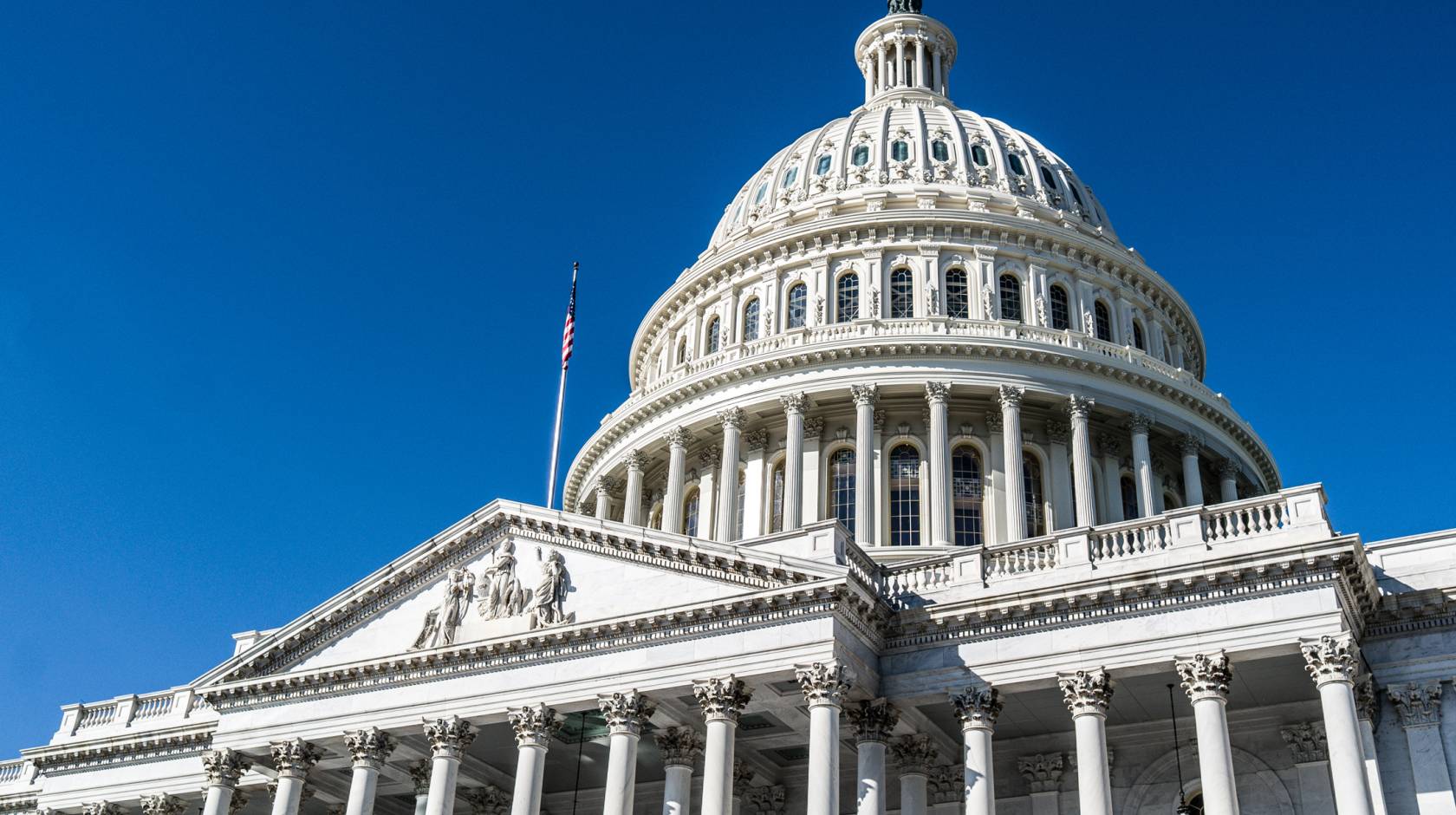UC Office of the President

Deep cuts in federal financial aid for college students. Less access to nutrition support programs. Millions of patients at risk of losing their health care. All of that is on the line as the Senate aims to vote on a reconciliation bill by July 4.
The U.S. House of Representatives version of the bill, HR 1, was passed by the House on May 22 by a narrow vote of 215-214. The U.S. Senate is now expected to vote on its own version of the bill as soon as this week. After that, the House and Senate would have to reconcile differences and pass the same bill before sending it to the president’s desk.
Debate in the Senate is expected to be contentious, as a number of popular, widely-used programs, such as Medicaid and Pell Grants, are facing significant cuts.
University of California leaders are among those speaking out, warning that the current proposals will make it harder for thousands of UC students to pay for college and could result in at least 1.7 million Californians losing their health care coverage, including many who rely on UC for their medical care.
“It’s abundantly clear that the budget reconciliation package would reduce access to higher education and health care and jeopardize UC’s ability to carry out its public service mission,” said Chris Harrington, UC associate vice president for Federal Governmental Relations, in a letter to California’s House delegation in May.
Federal student aid
Federal student financial aid programs relied upon by families around the country, in red states and blue, are among the programs impacted by the House bill, including the Pell Grant, a federal program that helps low-income students pay for college. With nearly 6 million undergraduates receiving Pell Grants each year, it is the single largest source of federal grant aid for students pursuing higher education.
Forty-one percent of UC’s California undergrads are eligible for the Pell Grant; for many, the financial support it provides (a max of $7,395 for each academic year) is crucial in deciding whether to attend college at all. A large number of students eligible for the Pell Grant juggle other commitments while attending school, especially work. HR 1 will no longer allow part-time students to qualify for Pell Grants, and it increases the number of credits that a student must take to be considered “full-time.” The provision is expected to impact as many as 33,000 UC students. However, the Senate’s version does not contain these harmful provisions.
“The Pell Grant has long been the cornerstone of access to higher education for students from low-income families, including for tens of thousands of UC students — it helps make college possible,” said Shawn Brick, associate vice provost for Student Financial Support at the UC Office of the President. “Any proposal that narrows or reduces Pell eligibility for hardworking students, like those with children or those with disabilities, makes it harder for them to access higher education, complete their degrees and contribute to the workforce."
Federal student loan programs meant to make college more affordable by providing low-interest loans are also on the chopping block.
In both the House and Senate versions of the bill, a loan program for graduate students would be eliminated entirely, and new limits would be placed on the Parent PLUS Loan program, making it harder for parents to borrow on behalf of their college-going children. These changes would drive up the cost of college for tens of thousands of families and push them toward the private student loan market, which offers significantly higher interest rates and fewer borrower protections. HR 1 also eliminates subsidized loans for undergraduate students, meaning that they will begin accruing interest on loans while still in school, a big increase in the overall cost of college at the same time that the University is trying to reduce student debt. The Senate version does not include this provision.
Basic needs
Californians who benefit from UC’s broad network of nutrition services across the state are also at risk of losing access to these programs under the current proposals.
Proposed changes in both HR 1 and the Sentencing bill to the Supplemental Nutrition Assistance Program (SNAP), known in California as CalFresh, are expected to make it more difficult for college students to qualify for food assistance, due to changes in the work requirement rules. Additionally, both bills would ultimately eliminate the SNAP Nutrition Education (SNAP-Ed) Program, which provides nutrition education and other resources to help low-income families make healthy choices on a limited budget. The program is administered by UC Cooperative Extension in 34 California counties. Of California’s 39 million residents, about 11 million have incomes low enough to participate in the program. Of the 1.8 million reached by this program in FY 2024, many reported improvements in their nutrition and physical exercise.
Health care
Medicaid, known as Medi-Cal in California, is a health care lifeline for low-income families. UC Health is the second largest provider of Medicaid in-patient care in the state, with patients on Medicaid making up 35 percent of inpatient days at University of California hospitals.
Both House and Senate bills create significant new barriers for Medicaid-eligible patients, including new work requirements, more frequent redetermination of eligibility and new cost sharing provisions that will be a financial burden. The Senate bill would dramatically deepen cuts to Medicaid beyond those provisions in the House bill that were projected to result in 1.7 million Californians — including many UC Health patients — losing health care coverage over the next few years. The bill also includes a number of provisions that make it harder for the state and providers to receive federal matching funds to pay for the cost of caring for Medicaid patients.
It’s not too late to get involved and share your views on the reconciliation bill. Many in California’s Congressional delegation have publicly spoken out about their concerns.

